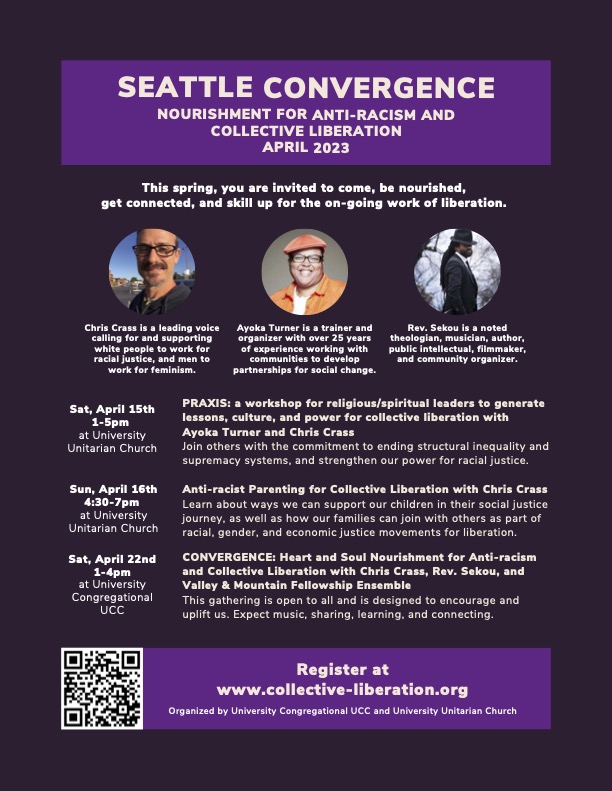UU Jacob Johns wounded in peaceful protest, here are ways to help
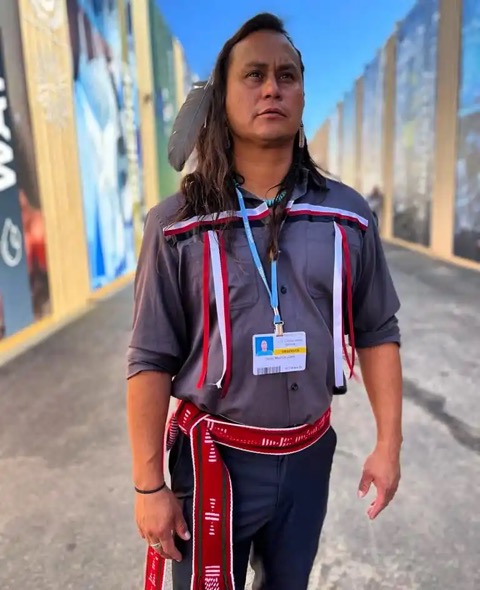
UUSC and UUCSJ Response to the Shooting of Indigenous Climate Activist Jacob Johns We are holding Jacob Johns, Indigenous climate activist, artist, musician, father, and Unitarian Universalist in great care and invite you to join us in supporting Jacob in his healing and organizing journey. Jacob was shot in the chest on the morning of Thursday, September 28, during a No Juan de Oñate statue peaceful protest in Tewa territory (more commonly known as Española, New Mexico) and is currently in the ICU. This protest was in response to local plans to build a conquistador monument. There are two ways you can financially support Jacob during this most difficult time and through the long haul of recovery
- Via the GoFundMe platform which has been launched for Jacob: https://gofund.me/0a63153a
- Via the Backbone Campaign, in support of Jacob’s ongoing Community Supported Organizing page, where tax-deductible donations can be made: https://www.backbonecampaign.org/jacob
Some news articles (though there's quite a few out there now) https://www.abqjournal.com/news/man-shot-during-juan-de-o-ate-statue-rally-in-espa-ola/article_946dcd3c-5e2d-11ee-9363-97e4e793df8a.html#1 https://sourcenm.com/2023/09/28/trump-supporter-shoots-someone-attending-peaceful-rally/ https://news.yahoo.com/sheriffs-official-ids-suspected-shooter-233400729.html Deb Cruz President, JUUstice Washington
Seattle Convergence with Chris Crass
PRAXIS: a workshop for religious/spiritual leaders to generate lessons, culture, and power for collective liberation with Ayoka Turner and Chris Crass Saturday, April 15, 2023, 1:00 pm - 5:00 pm This workshop is designed for folks engaged in leadership or interested in leadership within their communities. This is great for members of an anti-racism team, a congregation council or board, finance teams, and staff supervisors. This workshop will be in-person only.
Anti-racist Parenting for Collective Liberation Sunday, April 16, 2023, 4:30 pm - 7:00 pm This participatory workshop with focus on sharing stories and insights with an understanding that there are many ways that we do this/can do this in our families, and that sharing and being in community together can help us feel more connected, grounded and capable. This gathering will have a zoom option, so that people can still participate in small group conversations online
CONVERGENCE: Heart and Soul Nourishment for Anti-racism and Collective Liberation with Rev. Sekou and Chris Crass Saturday, April 22, 2023, 1:00 pm - 4:00 pm This gathering is open to all and is designed to encourage and uplift us. The gathering will include music, sharing, learning, and connecting. This gathering will be livestreamed as well as in-person!
Join a Unitarian Universalists for a Just Economic Community Task Force
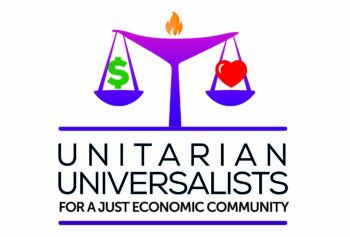 The UUJEC is, of course, very interested in democracy. We need more of it in our own operations. Participating in a task force that conducts our work is a good way for you to promote justice in the denomination and in the world.
Please, examine this task force list to decide where you can make your best impact on the world. When you find one (or two), click on the adjacent survey monkey link. Ehttps://www.surveymonkey.com/r/9CSTZM3ach link opens an eight-question survey that asks when and how you can meet with other interested members.
Program Task Forces:
The UUJEC is, of course, very interested in democracy. We need more of it in our own operations. Participating in a task force that conducts our work is a good way for you to promote justice in the denomination and in the world.
Please, examine this task force list to decide where you can make your best impact on the world. When you find one (or two), click on the adjacent survey monkey link. Ehttps://www.surveymonkey.com/r/9CSTZM3ach link opens an eight-question survey that asks when and how you can meet with other interested members.
Program Task Forces:
Health Care Leader: Judy Deutch https://www.surveymonkey.com/r/9CSTZM3
The Health Care Task Force works for health equity. We're concerned about access to health care and the quality of health care. This task force works with the UUA to implement the Action of Immediate Witness, COVID-19 Pandemic: Justice, Healing, Courage. As part of this program, we support Medicare for All and congregation-based organizing for personal and social wellness.Green New Deal Leader: Lucy Hitchcock https://www.surveymonkey.com/r/9YZVWSP
The Green New Deal task force explores and educates on the natural, industrial, social, political and economic causes and consequences of climate change and the actions of prevention and restoration in which we can engage. The GND task force sponsors a webinar once a month, assembles resources on our web pages, and invites participation in our work and community.Reparations for Racism Leader: Carl McCargo https://www.
Housing Justice Leader: Sally Gellert https://www.
Deadline for Democracy: June 28 - July 10, Pressure Congress for Voting Equity

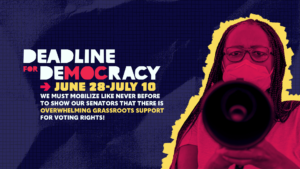 Yesterday, we launched our big plan for the upcoming congressional recess from June 28 - July 10: Deadline for Democracy. And now we’ve got just a few weeks to plan hundreds of events, drive thousands of signups, and get everything ready to put pressure on all 100 senators for real democracy reform.
A red and blue graphic. On the right is a woman wearing a medical mask and speaking into a megaphone. On the left it says "Deadline for Democracy June 28 - July 10 We must mobilize like never before to show our Senators that there is overwhelming grassroots support for voting rights!"
If you missed yesterday’s email with all the details, read on below for the rundown of what we’re planning for this crucial recess. If you’re ready to support us right now, click here to donate $10 to help us support events nationwide, build toolkits, create graphics, run ads, and more to make this recess a success and accomplish all our goals.
Why Deadline for Democracy?
To put it simply, we’re running out of time to implement all the most important democracy reform policies we’re fighting for. To make sure that measures like voting rights protections, fair redistricting, election security, and more are in place in time for the 2022 election cycle, laws like the For the People Act need to be on the books by August.
With a fleeting Democratic trifecta in power, we need to use these next few weeks to build massive public pressure for democracy reform and demand bold, transformative action for a democracy that works for everyone.
Congressional recesses are a key time for our activism -- with senators in their home districts, constituents can host rallies, earn press attention, and get creative to show our senators just how crucial these reforms are. And Indivisible activists know how to do just that: we’ve been doing it for years.
How are we supporting this mobilization?
Indivisible organizers and volunteers nationwide are already hard at work planning virtual and in-person events in their communities to keep building the momentum we need to win (there are already 79 events on our map -- check it out and add your own on the Deadline for Democracy website!). And here at Indivisible National, we’re getting ready to provide the resources, support, and tools they’ll need to make their plans a success.
Here are some of the ways we’re investing to make this recess the biggest one yet:
Yesterday, we launched our big plan for the upcoming congressional recess from June 28 - July 10: Deadline for Democracy. And now we’ve got just a few weeks to plan hundreds of events, drive thousands of signups, and get everything ready to put pressure on all 100 senators for real democracy reform.
A red and blue graphic. On the right is a woman wearing a medical mask and speaking into a megaphone. On the left it says "Deadline for Democracy June 28 - July 10 We must mobilize like never before to show our Senators that there is overwhelming grassroots support for voting rights!"
If you missed yesterday’s email with all the details, read on below for the rundown of what we’re planning for this crucial recess. If you’re ready to support us right now, click here to donate $10 to help us support events nationwide, build toolkits, create graphics, run ads, and more to make this recess a success and accomplish all our goals.
Why Deadline for Democracy?
To put it simply, we’re running out of time to implement all the most important democracy reform policies we’re fighting for. To make sure that measures like voting rights protections, fair redistricting, election security, and more are in place in time for the 2022 election cycle, laws like the For the People Act need to be on the books by August.
With a fleeting Democratic trifecta in power, we need to use these next few weeks to build massive public pressure for democracy reform and demand bold, transformative action for a democracy that works for everyone.
Congressional recesses are a key time for our activism -- with senators in their home districts, constituents can host rallies, earn press attention, and get creative to show our senators just how crucial these reforms are. And Indivisible activists know how to do just that: we’ve been doing it for years.
How are we supporting this mobilization?
Indivisible organizers and volunteers nationwide are already hard at work planning virtual and in-person events in their communities to keep building the momentum we need to win (there are already 79 events on our map -- check it out and add your own on the Deadline for Democracy website!). And here at Indivisible National, we’re getting ready to provide the resources, support, and tools they’ll need to make their plans a success.
Here are some of the ways we’re investing to make this recess the biggest one yet:
- Running digital ads to recruit volunteers and get the word out about our key priorities
- Buying materials and sending out swag boxes to volunteers around the country to give them everything they need to run successful events
- Printing personalized postcards for groups to send to their members of Congress in support of top democracy reform bills
- Hosting a shiny new website on behalf of dozens of partner organizations
- Running exclusive targeted peer-to-peer texting programs in priority states to build attendance
- Plus spending hundreds of hours writing policy resources, creating digital toolkits, and more to get everyone in the movement on board.
In Tulsa, Faith Leaders Call for Massacre Reparations
UU World This year, on its centennial, the Tulsa Race Massacre is drawing enormous attention in national and international media. The eyes of the world are on Tulsa, and as the city questions how to atone for the horror—indeed, how to give it proper recognition—local churches, including All Souls Unitarian Church, have a deeply committed answer: Reparations. Reparations remains a very controversial issue in the United States, even among some progressives. But for the Rev. Dr. Robert Turner, pastor of the Historic Vernon A.M.E. Church in Tulsa, reparations is a clear-cut issue of morality. Unlike white families, the descendants of Greenwood have been unable to reap the benefits of the wealth their families created. “There is no expiration date on morality,” he says.
Diversity training on WA college campuses will soon be mandatory
Crosscut by Hannah Krieg / May 31, 2021 On May 12, the Gov. Jay Inslee signed Senate Bill 5227, which mandates that Washington’s 40 public colleges and universities conduct training sessions and assessments for both faculty and staff around diversity, equity, inclusion and anti-racism starting in the 2022-23 academic year. According to the bill’s prime sponsor, state Sen. Emily Randall, D-Bremerton, the first draft of this legislation did not include student input, but when the idea came up in her meetings with student lobbyists, they wanted in. The bill does not prescribe a specific curriculum or programs. Randall, who admits to attending her share of “bad” diversity training sessions, hopes administrators, staff and students will collaborate on an approach that works for their institution. Students from across Washingston state who work on diversity issues have some ideas.
Resources for Dealing with Anti-Asian Racism from Indivisible
| If you are directly impacted by the events in Georgia, this resource from Northwestern University has collected several different resources for fighting xenophobia and anti-Asian racism. |
- Asian Americans Advancing Justice Atlanta protects the civil rights of the AAPI community in Georgia and the southeast. If you can, consider donating.
- Asian American Feminist Collective has a wide range of resources including a zine for supporting Asian American communities during COVID-19, links to mutual aid funds and nonprofits providing support, reading lists, and more.
- Red Canary Song provides resources for Asian migrant communities, Asian sex working communities, and the overlap between these two groups. Read their statement on the murder of the Asian American massage workers in Atlanta, and consider donating.
- Check out The Making of Asian America: A History by Erika Lee for a comprehensive look on the long and forgotten history of Asian American life.
- If your representative is one of these 164 Republicans who voted against Rep. Meng’s resolution condemning Anti-Asian racism, or one of the 172 Republicans who voted against the Reauthorization of the Violence Against Women Act (less than 24-hours after the murders in Atlanta), call them at (202) 224-3121 to let them know you were paying attention and their actions have consequences.
- Then, check out and share this resource on anti-Asian violence.
- If you’re able, split a donation among eight organizations that are fighting to protect and support the AAPI community. Click here to split a donation now.
Digital maps show how climate change’s impact in WA isn’t equal
The maps, commissioned as part of InvestigateWest's yearlong reporting project, Getting to Zero: Decarbonizing Cascadia, span Washington and Oregon and provide digital windows into vulnerabilities that are likely to worsen with climate change. Montana-based Headwaters Economicscreated the interactive visualizations using a pair of powerful mapping tools that the community planning firm launched last year. The maps created for this project are an example of tools undegoing growing use in Cascadia, where equity advocates, academic researchers and governments are teaming up to create new data-driven methods to identify and address unequal environmental risks. A movement that began several years ago accelerated in 2020 as the skewed death tolls from COVID-19 laid bare systemic social and economic inequalities on both sides of the border, and surging outrage amidst police shootings spurred governments into action. Read more here.
New Caucus for BIPOC UUs to Tackle Intersection of Race, Climate Justice
Have you ever wondered, Why were the minority neighborhoods in Texas the first to lose power during the recent power blackouts? Why are polluting industries and waste dumps always sited where Black, Indigenous and other People of Color (BIPOC) folks live? Why has the Covid pandemic been particularly devastating for the poor, marginalized BIPOC communities? And, yet, why have they been deprived of early vaccination? The list of injustices is never ending!
So, why do climate justice work in a UU church? Our faith calls us to build the Beloved Community that Dr. Rev. Martin Luther King dreamed of. We cannot build a Beloved Community when racism, oppression and discrimination is the custom of the land. Our principles call on us to uphold the inherent worth and dignity of all and to respect the interdependent web of all existence. And the proposed Eighth Principle calls us to accountably dismantle racism and other oppressions. Then, how can we not, as UUs, dedicate ourselves to finding justice for the most vulnerable who are least responsible for the continued destruction of our environment but are ignored time and time again. Indeed, the BIPOC are hardly ever at the table to represent their own interests!
In collaboration with the UU Ministry for Earth, we are privileged to the recent launch of a caucus for BIPOC UUs who are passionate about the intersections of racial, environmental and climate injustices.
Why a separate caucus for BIPOC? As we said above, we have long witnessed the disproportionate and disastrous impacts of climate change on communities of color. The BIPOC caucus will create a space for us to meet with others devoted to environmental and climate justice work, and also be a voice for us in the broader environmental and climate justice movement. It will allow us to form bonds with other BIPOC who fight not only racial and environmental injustices but are also the embodiment of living through a long history of injustice and cruelty.
Meetings of the group are open to everyone right now, irrespective of their racial identity, with time set aside for BIPOC and White caucusing. Starting this summer, the mutliracial group will meet approximately once a quarter, and the BIPOC caucus will meet roughly monthly.
We are grateful for the UUMFE for giving us a home as we begin this journey, and for offering time, energy and support. And, we thank all those who joined us for our first meeting and hope to see more folks attend the second session, on Thursday, March 18 at 5pm PT / 8pm EDT - you can find more information below in this newsletter. We pray that they keep coming back, that the caucus grows, and that we can engage in meaningful and spiritually fulfilling work. Amen.
In faith and solidarity,
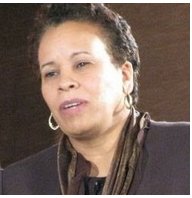
All Souls Church,
Washington, DC
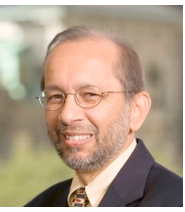
First Parish,
Cambridge, MA
How Gerrymandering Silences the Environmental Vote
This year, state legislatures will redraw the electoral map. The GOP controls most state legislatures, and they are expected to draw congressional districts to favor Republicans, which will make it easier for them to win a majority of seats in the House of Representatives, even if they fail to win the most votes overall. This dynamic will influence policymaking on a number of issues, including the environment. Recent events in North Carolina give some idea of what to expect. In North Carolina, coal-fired plants historically dealt with the leftover ash by mixing it with wastewater and dumping it into an open pit nearby. Because coal generators need a lot of water, power plants and coal ash ponds usually sit next to a lake or river. Read more here.
HB 1412 Legal Financial Obligations
In 2018, the legislature passed a bill reducing legal financial obligations (LFO) imposed on defendants convicted of crimes. At that time, LFO legislation was one of the priorities identified at the 2017 Justice Summit. LFO’s are court costs and other financial costs that recently incarcerated people are required to pay after release, and they can deter them from paying other costs such as housing or job searches. HB 1412 would reduce these costs even more because it:
- Allows a court to refrain from imposing or waive full or partial restitution and accrued interest owed to any insurer or entity that is not an individual if the offender does not have the means to pay.
- Allows a court to not impose interest on restitution after inquiring into and considering specified factors and input of the victim.
- Revises standards for the waiver of accrued interest on restitution and non-restitution obligations.
- Revises the time periods in which judgments for restitution and non restitution legal financial obligations may be enforced.
- Establishes a revised standard of indigency for purposes of a number of provisions applicable to legal financial obligations.
Continue reading
WA legislature takes on systemic racism in insurance rates
Continue reading
Washington’s vaccine rollout slower for BIPOC communities
For example, 3.6% of those 65 and older in Washington state identify as Latino, yet only 2.5% of that population has been vaccinated. And 2.1% of Washingtonians older than 65 are Black, but only 1.2% have been vaccinated so far. Seattle Mayor Jenny Durkan, for her part, said she has focused on adult family homes, affordable housing buildings and pop-up clinics, with roughly 70% of the more than 4,000 individuals vaccinated by the city identifying as Black, Indigenous, or People of Color.
Read more here.
Continue reading
Seattle’s controversial ‘poverty defense’ proposal stalls out
Continue reading
Hidden Barriers
Continue reading
Support Moving the HEAL Act Out of the senate Chamber, 2-22-21
Good news! SB 5141-The HEAL Act, made it out of the Senate Ways & Means Committee last Friday! We are thrilled, but with a close 13-12 vote, there is no room for error. We must be methodical in our next steps.
Now, our focus turns to passing the HEAL Act out of the Senate chamber. This means your Senator needs to hear from you today!
Take this online action to let them know that a healthy and safe environment for everyone is unconditional. Share this Facebook post to encourage others to do so!
With the tragedy in Texas serving as the lastest example, communities of color bear the brunt of the burden borne by environmental disasters. This can lead to medical ailments, the loss of housing and income, and create lasting hardships. It doesn’t have to be this way, and the HEAL Act directs state agency staff to establish meaningful relationships with underserved communities. This will improve the preparation, prevention, and communication work our state does to shield us from environmental threats. It is crucial because we want everyone to be safe when the next wildfire, flood, or heat wave strikes.
Think of the state of our environment as a sick patient and our environmental laws as the doctor meant to provide the cure. Without the HEAL Act, that doctor won’t be able to provide a full diagnosis, prescribe the right medicines, and provide a wellness plan that matches the patient's needs and abilities. We need to HEAL our environment and not let it get any sicker.
We are engaged in a relentless communication effort to ensure the Senate prioritizes the HEAL Act. Stay tuned for additional actions soon!
Thank you so much,
Sameer Ranade Civic Engagement and Policy Manager Sameer@frontandcentered.org (360) 218-4642
Continue reading
Investigation finds Latino ballots in WA more likely to be rejected
Experts and voters themselves have suggested a variety of explanations for signature rejections among Latino voters, including language barriers, education levels and implicit bias. This issue is amplified by Latino voters seeming to be less successful than other voters at “curing,” or fixing, their signature rejections, the InvestigateWest analysis found
“I’m not surprised that Latin American sounding names are thrown by the wayside,” Reyes said of InvestigateWest’s analysis. She doesn’t believe her signature should be suspect. Like other kids in her Benton County school, she learned cursive long ago, and her parents even helped her practice at home.
Read more here.
Continue reading
WA health care often lacks language services for immigrant patients
Season 1, Episode 3, Video duration, 6 min 43 s
Continue reading
The Latest Books and Reports Covering Environmental Racism and Justice
The COVID-19 pandemic has confirmed again a fundamental truth about the Anthropocene: When disaster strikes, the vulnerable take the hardest punches. Communities of color have suffered much higher rates of infection, hospitalization, and mortality, both because they are disproportionately represented in frontline service positions and because their access to routine healthcare is more limited.
Continue reading
